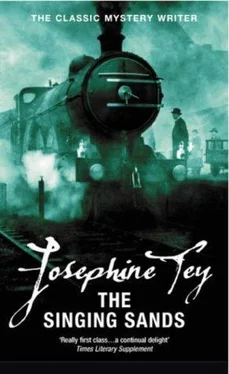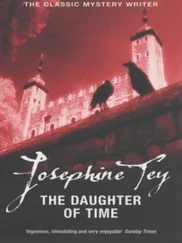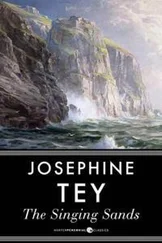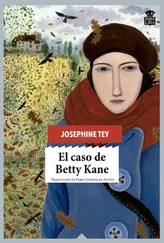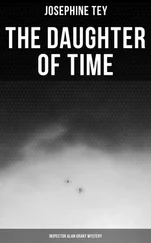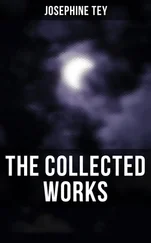‘Why? What should you care?’
‘I had no choice in the matter. The thing ran round and round in my head. Do you know anyone called Charles Martin?’
‘No, I don’t. And don’t change the subject.’
‘I’m not changing the subject, oddly enough. Do me the kindness to think of it seriously for a moment. Have you ever, at any time, heard of or known a Charles Martin?’
‘I’ve told you, no! I don’t have to think. And of course you’re changing the subject! What has Charles Martin got to do with this?’
‘According to the police, the man who was found dead in Compartment B Seven was a French mechanic called Charles Martin.’
After a moment Cullen said: ‘Look, Mr Grant, maybe I’m not very bright, but you’re not making sense. What you’re saying is that you saw Bill Kenrick lying dead in a compartment of a train, but he wasn’t Bill Kenrick at all; he was a man called Martin.’
‘No, what I’m saying is that the police believe him to be a man called Martin.’
‘Well, I take it they have good grounds for their belief.’
‘Excellent grounds. He had letters, and identity papers. Even better, his people have identified him.’
‘They did! Then what have you been stringing me along for! There isn’t any suggestion that that man was Bill! If the police are satisfied that the man was a Frenchman called Martin, why in thunder should you decide that he wasn’t Martin at all but Bill Kenrick!’
‘Because I’m the only person in the world who has seen both the man in B Seven and that snapshot.’ Grant nodded at the photograph where it lay on the dressing-table.
This gave Cullen pause. Then he said: ‘But that’s a poor photograph. It can’t convey much to someone who has never seen Bill.’
‘It may be a poor photograph in the sense that it is a mere snapshot, but it is a very good likeness indeed.’
‘Yes,’ Cullen said slowly, ‘it is.’
‘Consider three things; three facts. One: Charles Martin’s people had not seen him for years, and then they saw only a dead face; if you are told that your son has died, and no one suggests that there is any doubt as to identity, you see the face you expected to see. Two: the man known as Charles Martin was found dead on a train on the same day as Bill Kenrick was due to join you in Paris. Three: in his compartment there was a pencilled jingle about talking beasts and singing sands, a subject that on your own showing had interested Bill Kenrick.’
‘Did you tell the police about the paper?’
‘I tried to. They weren’t interested. There was no mystery, you see. They knew who the man was, and how he died, and that was all that concerned them.’
‘It might have interested them that he was writing verse in English.’
‘Oh, no. There is no evidence that he wrote anything, or that the paper belonged to him at all. He may have picked it up somewhere.’
‘The whole thing’s crazy,’ Cullen said, angry and bewildered.
‘It’s fantastic. But at the heart of all the whirling absurdity there is a small core of stillness.’
‘Yes?’
‘Yes. There is one small clear space on which one can stand while taking one’s bearings.’
‘What is that?’
‘Your friend Bill Kenrick is missing. And out of a crowd of strange faces, I pick Bill Kenrick as a man I saw dead in a sleeping-compartment at Scoone on the morning of the 4th of March.’
Cullen thought this over. ‘Yes,’ he said drearily, ‘I suppose that makes sense. I suppose it must be Bill. I suppose I knew all the time that something—something awful had happened. He would never have left me without word. He would have written or telephoned or something to say why he hadn’t turned up on time. But what was he doing on a train to Scotland? What was he doing on a train anyhow?’
‘How: anyhow?’
‘If Bill wanted to go somewhere he would fly. He wouldn’t take a train.’
‘Lots of people take a night train because it saves time. You sleep and travel at the same time. The question is: why as Charles Martin?’
‘I think it’s a case for Scotland Yard.’
‘I don’t think the Yard would thank us.’
‘I’m not asking for their thanks,’ Cullen said tartly, ‘I’m instructing them to find out what happened to my buddy.’
‘I still don’t think they would be interested.’
‘They’d better be!’
‘You have no evidence at all that Bill Kenrick didn’t duck of his own accord; that he isn’t having a good time on his own until it is time to go back to OCAL.’
‘But he was found dead in a railway compartment!’ Cullen said in a voice that was nearly a howl.
‘Oh, no. That was Charles Martin. About whom there is no mystery whatever.’
‘But you can identify Martin as Kenrick!’
‘I can say, of course, that in my opinion that face in the snapshot is the face I saw in Compartment B Seven on the morning of March the 4th. Scotland Yard will say that I am entitled to my opinion, but that I am without doubt misled by a resemblance, since the man in Compartment B Seven is one Charles Martin, a mechanic, and a native of Marseilles, in the suburbs of which his parents still live.’
‘You’re very smooth in the part of Scotland Yard, aren’t you! All the same—’
‘I ought to be. I’ve worked there for more years than I care to think about. I shall be going back there a week Monday, as soon as my holiday is over.’
‘You mean that you are Scotland Yard?’
‘Not the whole of it. One of its minor props. Props in the support sense. I don’t carry cards in my fishing clothes but if you come up to my host’s house with me he will vouch for my genuineness.’
‘Oh. No. No, of course I believe you, Mr—er—’
‘Inspector. But we’ll stick to Mr, since I’m off duty.’
‘I’m sorry if I was fresh. It just didn’t occur to me—You see, you don’t expect to meet Scotland Yard in real life. It’s just something you read about. You don’t expect them to—to—’
‘To go fishing.’
‘No, I guess you don’t, at that. Only in books.’
‘Well, now that you have accepted me as genuine, and you know that my version of Scotland Yard’s reaction is not only accurate but straight from the horse’s mouth, what are we going to do?’
When Laura heard next morning that Grant intended to go in to Scoone instead of spending the day on the river, she was indignant.
‘But I’ve just made up a wonderful luncheon for you and Zoë,’ she said. He was left with the impression that her dismay was rooted in some cause more valid than a miscalculated meal, but his mind was too busy with more important matters to analyse trivialities.
‘There’s a young American staying at Moymore who has come to ask my help about something. I thought that he might take my place on the river, if no one has any objection. He has fished quite a bit, he tells me. Perhaps Pat would like to show him the ropes.’
Pat had come to breakfast in a state so radiant that the glow of it could be felt clear across the table. It was the first day of the Easter holidays. He looked with interest when he heard his cousin’s suggestion. There were few things in life that he enjoyed so much as showing someone something.
‘What’s his name?’ he asked.
‘Tad Cullen.’
‘What’s “Tad”?’
‘I don’t know. Short for Theodore, perhaps.’
‘M—m—m,’ said Pat doubtfully.
‘He’s a flyer.’
‘Oh,’ said Pat, his brow clearing. ‘I thought maybe with a name like that he was a professor.’
‘No. He flies to and fro across Arabia.’
‘Arabia!’ said Pat, rolling the R so that the mundane Scots breakfast table scintillated with reflections of the jewelled East. Between modern transport and ancient Bagdad, Tad Cullen seemed to have satisfactory credentials. Pat would ‘show him’ with pleasure.
Читать дальше
